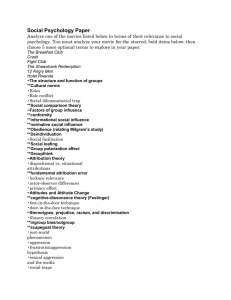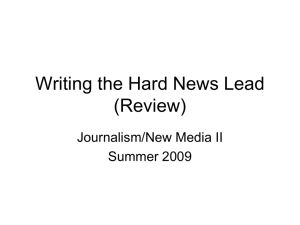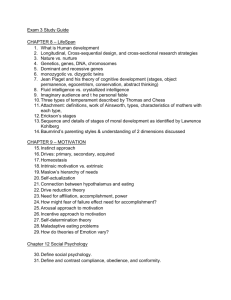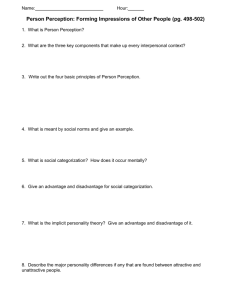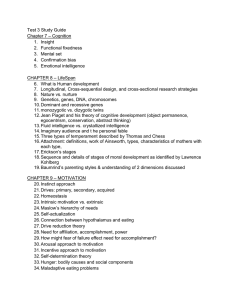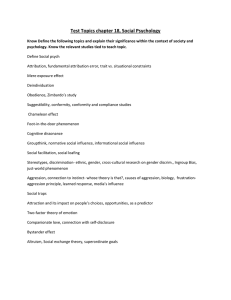study guide
advertisement
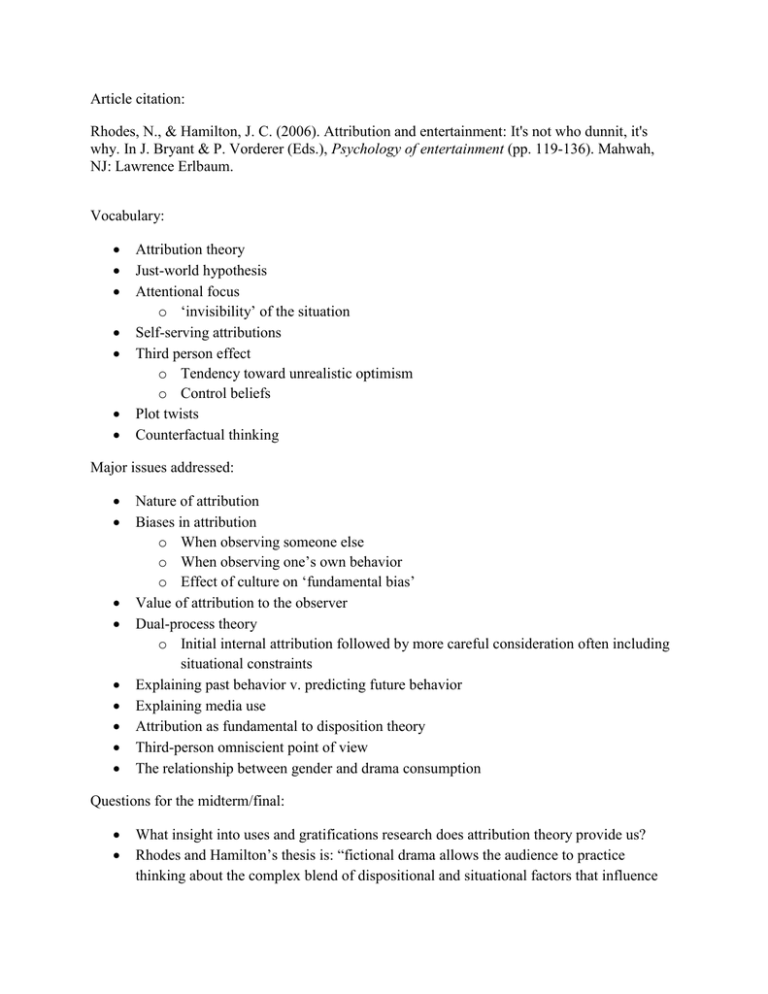
Article citation: Rhodes, N., & Hamilton, J. C. (2006). Attribution and entertainment: It's not who dunnit, it's why. In J. Bryant & P. Vorderer (Eds.), Psychology of entertainment (pp. 119-136). Mahwah, NJ: Lawrence Erlbaum. Vocabulary: Attribution theory Just-world hypothesis Attentional focus o ‘invisibility’ of the situation Self-serving attributions Third person effect o Tendency toward unrealistic optimism o Control beliefs Plot twists Counterfactual thinking Major issues addressed: Nature of attribution Biases in attribution o When observing someone else o When observing one’s own behavior o Effect of culture on ‘fundamental bias’ Value of attribution to the observer Dual-process theory o Initial internal attribution followed by more careful consideration often including situational constraints Explaining past behavior v. predicting future behavior Explaining media use Attribution as fundamental to disposition theory Third-person omniscient point of view The relationship between gender and drama consumption Questions for the midterm/final: What insight into uses and gratifications research does attribution theory provide us? Rhodes and Hamilton’s thesis is: “fictional drama allows the audience to practice thinking about the complex blend of dispositional and situational factors that influence complex human social behavior.” Explain what they are saying in your own words and provide examples. If the authors are correct and attributional processes are at the heart of the enjoyment of media content, how could you improve videogames to make them more enjoyable? Be specific about changes that you could make.

